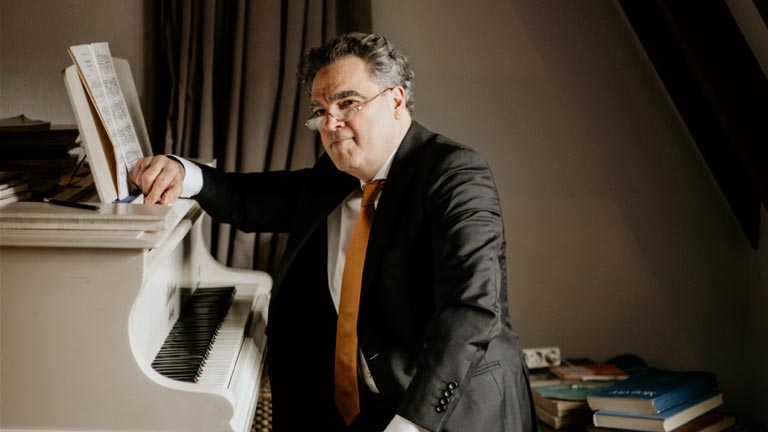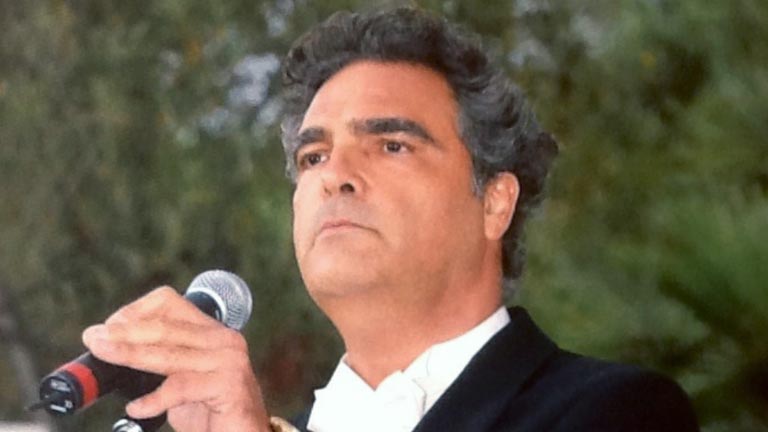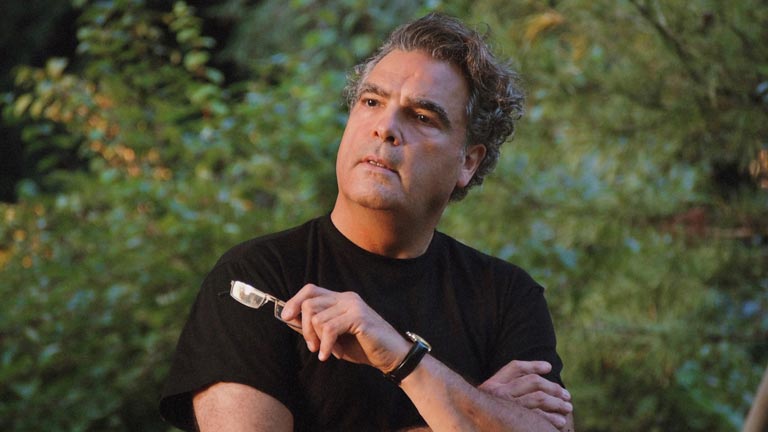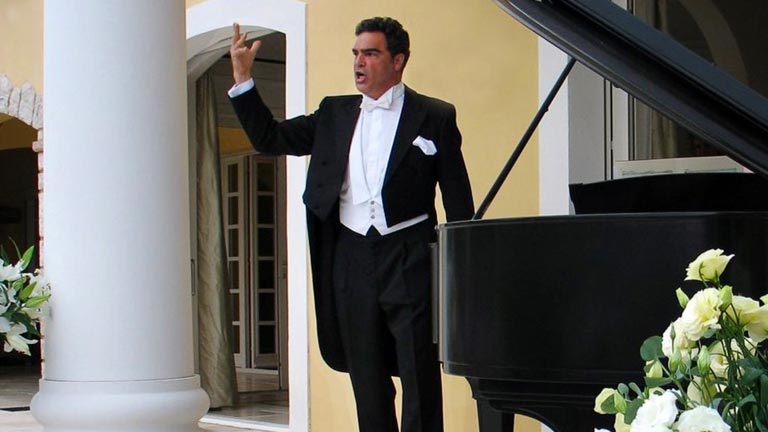The Opera Singer
Wolfgang Rauch, baritone opera singer, was born in Cologne, Germany. After graduating in economics and political science, he studied singing at the Music College in Cologne, as well as in Italy and France, graduating with a diploma with distinction.
His extraordinary talents as a singer and performer gained him a place as a permanent member of the of the Deutsche Oper am Rhein ensemble in Düsseldorf, and he later progressed to the Bavarian State Opera in Munich under the direction of Prof. Wolfgang Sawallisch while he was still studying singing. Professor Sawallisch entrusted him with all the important roles in the field of lyric and cavalier baritone.
During this time, Placido Domingo became aware of Wolfgang and engaged him for his gala concert on the occasion of the reopening of the Prinzregenten Theatre in Munich. The increasing number of inquiries from Germany and abroad prompted Wolfgang to embark on an international career. In his approach to singing, linguistic aspects are of great importance, and in addition to his German mother tongue he is fluent in French and Italian, and also speaks English and Spanish.
From his adopted homeland of France, he was a guest at most of the world’s leading opera houses: Vienna State Opera, La Scala di Milano, the Royal Opera House London, Bavarian State Opera in Munich, Hamburg State Opera, Deutsche Oper Berlin, Semper Oper Dresden, Opéra de Nice, Opéra de Monte Carlo, Opéra de Marseille, Theater du Capitol Toulouse, Oper der Stadt Köln, Neederlandse Opera Amsterdam and Vlaamse Opera Antwerpen. Guest performances have taken him to the Manuel de Falla Festival in Granada, to Santiago de Chile in Japan and to concerts at the Accademia Santa Cecilia in Rome.
In accordance with his age and the level of his vocal maturity, he works today in the field of dramatic baritone with an elegiac shaping of the high notes, in roles such as Jochanaan, Amfortas, Telramund, Rigoletto, Tonio, Escamillo and Dapertutto, to name just a few.
The singing teacher

My long international career in German, Italian and French opera, as well as my musical and choral work with important conductors and directors has given me deep insights into vocal technique, musical interpretation and scenic work.
Encouraged by teachers such as Josef Metternich or Mario Del Monaco from the old Bel Canto school, as well as experts in more modern functional techniques such as Michel Grillo-Hart and Richard Miller, I have developed a technique over the decades that combines knowledge of the Bel Canto with the so-called functional technology.
I practice this knowledge constantly through intensive work with my students and exchange with the National Association of Teachers of Singing (NATS) in the USA as well as running further training courses at the Medical Voice Center of the University Hospital in Hamburg under the direction of Prof. Markus Hess.
Since about 80% of my opera and concert repertoire is sung in Italian, German or French, I am fluent in these languages as well as English, and can also teach in them.
The voice coach

As part of my long-term collaboration with speech therapist Gudrun Ayasse in Munich, I developed a voice training technique that offers efficient help for those who wish to stop just speaking and start talking.
Speaking at conferences and in public, sales talks or just taking enjoyment from the sound of a beautiful, sonorous speaking voice; all these require good articulation and diction as well as trained phonation.
I believe that singing can also be seen as an extended from of speaking, so I use the breathing technique, the training of the vocal cords and the resonant chambers of classical singing to get the best from your speaking voice.
During my lectures, I work with my students on authentic posture, stress management and fundamental rhetorical knowledge.
The breathing coach

Attitude is everything.
Whether singing, speaking or talking, the spine is the central element.
To my regret, I have noticed over the years that people’s posture is becoming worse. We are moving towards what I call “Homo iPhoniensis” and “Homo Computeriniensis”. The neck is bent forward, and the body is slumped, which is the opposite of the posture that is necessary to build a healthy breathing technique and a strong voice.
Working in cooperation with doctors and physiotherapists, I therefore developed a concept using different approaches that include:
- Relaxation through partial massage and through gymnastics and perception training
- Stretching through targeted exercises on the neck, head and chest
- Awareness of the respiratory muscles
- Breathing rhythm training
- Breathing exercises with auxiliary devices and phonation exercises, as well as stimulating the production of nitric oxide. The respiratory muscles are not only a function for the O2/CO2 exchange, but also assist the development of the right mindset and posture.

